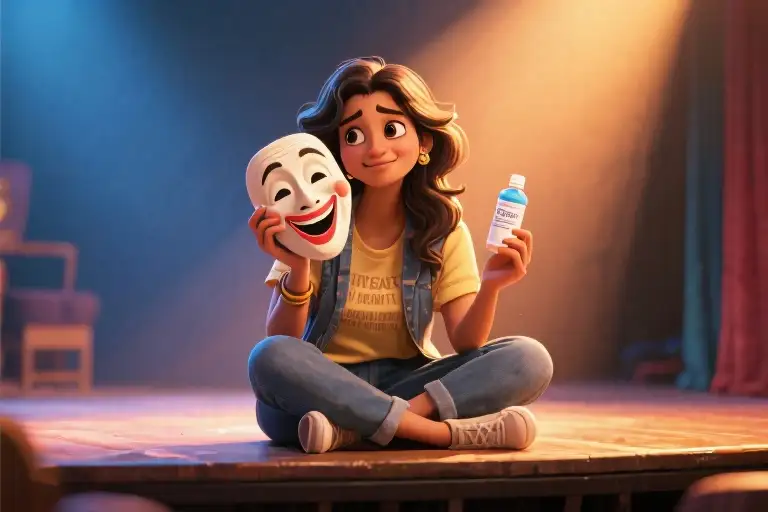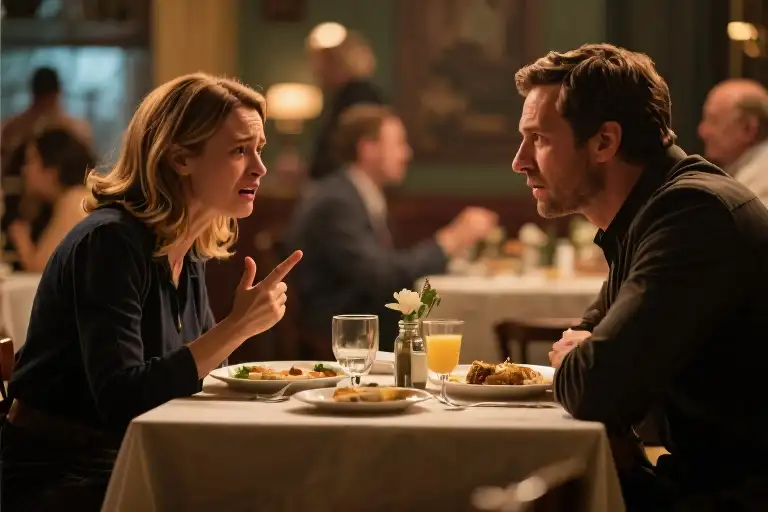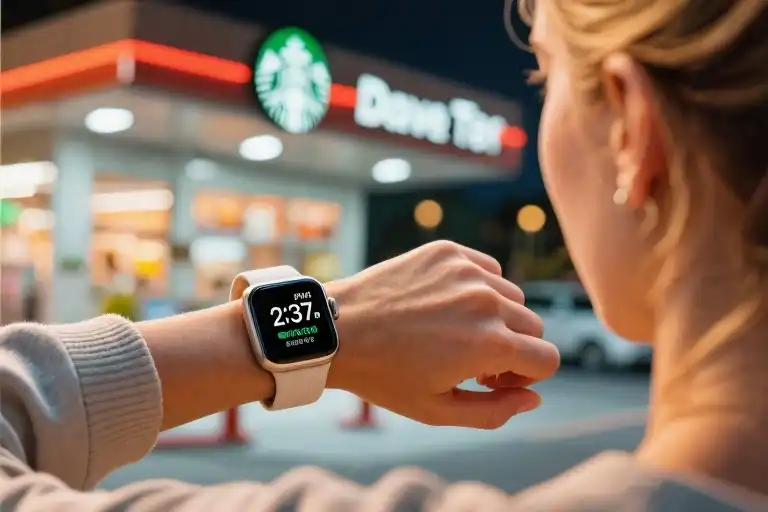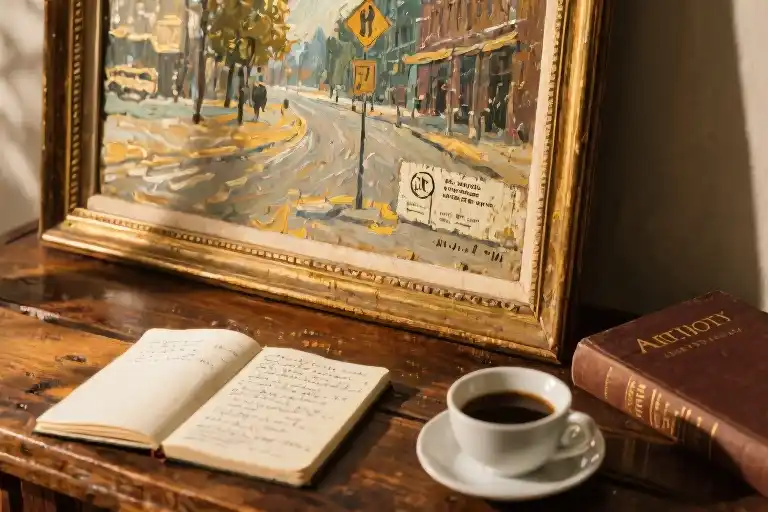The first time I realized humor could bend reality, I was seven years old and desperately wanted to play computer games after dinner. My parents had said no—that universal parental verdict delivered with the finality of a judge’s gavel. But I’d recently observed how adults treated religious rituals with peculiar reverence. So I tore a scrap of notebook paper, scribbled ‘YES’ in my best impression of divine handwriting, and pressed it between my palms like a sacred offering.
Standing before the small deity statue in our living room, I performed what would become my first one-act tragicomedy: Petitioning the Gods for Gaming Rights. With dramatic pauses worthy of a Shakespearean soliloquy, I ‘consulted’ the heavens, then gasped as the pre-planned answer miraculously materialized between my fingers. My parents’ exasperated laughter became my standing ovation.
That became my signature role—the family jester who could weaponize absurdity to diffuse tension or gain minor victories. I’d fake-sob with theatrical flair until real tears came, deliver impromptu monologues about the tragedy of unfinished homework, or reenact grocery store encounters with spot-on caricatures of grumpy cashiers. Humor was my superpower, one that made me feel invincible against childhood’s ordinary sorrows.
What I didn’t understand then was how that same instinct—to perform, to exaggerate, to twist reality into something laughable—would years later become not just a party trick, but a survival skill. The child who staged elaborate comedy routines didn’t know she was rehearsing for a different kind of performance: learning to laugh when her own mind became the antagonist.
Clinical depression arrived without warning at fourteen, trailed by two anxiety disorders like unwelcome understudies. The same brain that once concocted ridiculous schemes now conjured endless worst-case scenarios. Where I’d once exaggerated for laughs, I now catastrophized in earnest. My theatrical tears had been props; these new ones were evidence.
Yet even in that emotional freefall, remnants of my humor remained—not in the boisterous, attention-seeking way of childhood, but as something quieter, more stubborn. Like emergency lighting that flickers on when the main power fails. That duality—between outward laughter and inner struggle—is what no one prepares you for when they talk about mental health. How you can simultaneously be the person cracking jokes at a party and the one counting minutes until it’s socially acceptable to leave. How ‘getting better’ isn’t a straight line but a pendulum swing between genuine amusement and performative cheer.
The little girl who faked divine messages would never have imagined her future self using humor as both shield and SOS signal. But that’s the unspoken truth about comedy: sometimes the loudest laughter comes from people who’ve learned the hard way how silence can hurt.
The Divine Comedy of Childhood
At seven years old, I discovered my first theatrical masterpiece involved a scrap of paper, folded hands, and a well-timed dramatic pause. The performance always began the same way – after being told ‘no computer games today,’ I’d carefully scribble ‘YES’ on a torn notebook corner, clutch it between my palms like sacred parchment, and kneel before our living room statue of Ganesha with the solemnity of a priestess receiving visions.
‘Oh mighty one,’ I’d whisper-shout, tilting my head at precisely 23 degrees to maximize pathos, ‘may I please play just one game?’ The dramatic unfolding of hands would reveal my pre-written divine permission slip, which I’d brandish triumphantly at my exasperated parents. My mother’s eye-rolls became standing ovations in my mind.
This wasn’t mere childhood mischief – it was immersive theater. I studied audience reactions like a Broadway director during previews. The way my father’s mustache twitched when suppressing laughter became my review in the New York Times. My younger sister’s confused blinking? A Tony nomination.
Method Acting 101
The computer game oracle routine eventually spawned spinoff performances. There was my award-worthy ‘Tragic Princess’ monologue series, delivered while draped over the couch arm like a Victorian fainting couch. I’d practice crying on command until I discovered the magic formula: three rapid blinks while thinking about abandoned puppies, followed by one dramatic tear down the right cheek only. The left cheek tear came later, during my experimental phase.
Then came the breakthrough role that changed everything – the day my fake crying turned real. Mid-performance about some imagined playground injustice, something shifted. The pretend sobs caught in my throat like fishhooks, pulling up actual sadness I didn’t know lived beneath the performance. My audience of stuffed animals saw something new that afternoon: genuine emotion breaking through the carefully constructed comedy.
Behind the Curtain
Childhood humor wasn’t just about laughter – it was emotional alchemy. Each exaggerated performance transformed ordinary moments into something shimmering and significant. The classroom clown bits? A way to control the narrative when I felt invisible. The dramatic reenactments of minor inconveniences? An early coping mechanism dressed in glitter and jazz hands.
Psychologists might call it ‘attention-seeking behavior.’ I call it survival strategy 101. When you’re the quiet kid who notices too much, humor becomes both shield and spotlight. You learn to deflect with laughter before anyone can see the parts that don’t fit the joke. The performances gave me something precious: a script when life felt improvisational, applause when I feared silence.
Looking back, I recognize the blueprint in those childhood antics. The way comedy could simultaneously reveal and conceal truths. How laughter created just enough distance from pain to examine it safely. Little did I know these skills would become vital equipment for navigating darker seasons ahead – back when the only demons I faced were early bedtimes and broccoli on my plate.
When the Stage Lights Went Out
The year I turned fourteen, something shifted in the wiring of my brain. Where there had once been spotlights and standing ovations for my dramatic performances, there was now only static—a relentless white noise that drowned out all desire to perform. The same hands that used to conjure imaginary ‘YES’ notes from the gods now struggled to lift the remote control.
The Disappearing Act
My most jarring performance yet? Becoming invisible. Where I’d once fake-sobbed with theatrical flair to make my cousins laugh, I now hid in bathroom stalls during lunch breaks, pressing my forehead against cool tiles while real tears—hot, silent, and entirely unscripted—tracked down my face. The contrast couldn’t have been starker:
- Then: Deliberately loud wailing that ended with a wink and jazz hands
- Now: Breath held until my ribs ached, terrified someone might hear me sniffle
Anxiety arrived uninvited at fifteen, bringing physical symptoms I couldn’t laugh off:
- Heart as percussionist: Palpitations that made my chest feel like a snare drum during a punk rock solo
- Lungs as traitors: Shallow breaths that left me lightheaded, as if I’d run miles without moving
- Skin as lie detector: Flushing at random, betraying calm I didn’t feel
The Script I Didn’t Write
Doctors called it ‘generalized anxiety disorder’—a bland label for the visceral reality of feeling like my nervous system had been swapped with a haunted house soundboard. Random adrenaline surges made ordinary moments feel like horror movie jump scares. Waiting for the school bus? Could be a panic attack. Group project presentation? Potential fainting hazard.
I missed the days when tears were props I could put away after the scene ended. Now when the crying started, I’d count ceiling tiles until the storm passed, each number a lifeline against the riptide of:
- Guilt (“Why can’t I just snap out of it?”)
- Shame (“Real actors don’t forget how to perform”)
- Grief (For the girl who used to make grocery lists into comedy routines)
Intermission
The cruelest irony? My humor hadn’t actually died—it had just changed venues. While my outer world dimmed, an inner monologue still cracked dark jokes about my situation. (“At least my panic attacks are consistent—unlike my algebra grades.”)
This chapter didn’t end with a triumphant return to the stage. The lights stayed dim for years. But in that darkness, I began noticing something: even broken spotlights cast interesting shadows.
The Underground Comedy Club
On paper, I look like the comeback story therapists love to photocopy. The meds are working (mostly), I can crack jokes at parties again, and my Instagram captions have regained their signature self-deprecating flair. But here’s the backstage truth no wellness influencer will tell you: recovery isn’t a curtain call where the spotlight magically dissolves all the shadows. These days, my humor operates like an underground comedy club – the laughter’s real, but the exit signs still glow in the dark.
The Punchline Paradox
There’s an unspoken rule in my therapy sessions now: every emotional revelation must be delivered with a side of sarcasm. Last Tuesday, I deadpanned to my psychiatrist, “Turns out my anxiety isn’t actually a superpower – who knew being constantly alert for danger wouldn’t help me finish my taxes?” while simultaneously twisting the prescription bottle cap in my pocket. This is the new math of my mental health: joke delivery + medication reminder = coping mechanism squared.
What fascinates me most is how humor has shape-shifted from my childhood performance art into something more primal. Where I once crafted elaborate comedy routines for applause, now I whisper absurd observations to myself in grocery lines (“If avocados are always either rock-hard or brown mush, does that mean the perfect ripe one is just a culinary myth?”) just to short-circuit panic attacks. Psychologists call this “coping with anxiety through laughter” – I call it survival stand-up.
The Setlist Changes
My material has evolved in telling ways. Childhood me would exaggerate misfortunes for comic effect; present-day me undercuts real pain with deliberate anti-climax (“And then my serotonin levels dropped like a mic at a bad poetry slam”). Friends think I’m “back to my old self” when I roast our group chat, but the wiring’s completely different – these jokes aren’t for their laughter anymore, but for my own oxygen supply.
Three signature moves survived the depression era:
- The Diagnostic Deadpan (“Generalized anxiety disorder just means I’m right about everything being dangerous”)
- The Medication Mockumentary (“Prozac: helping me cry at dog commercials since 2018”)
- The Therapy Sitcom (pretending my OCD thoughts are bad open mic performers)
Encore with Caveats
Here’s what mental health personal stories often gloss over: the humor doesn’t erase the struggle, it just makes it portable. I can now explain my antidepressant side effects through a Harry Potter metaphor (“Turns out Occlumency lessons come with dry mouth”), but the pills still rattle in my bag every morning. The biggest lie we tell about using comedy to cope? That it’s about making darkness funny. Really, it’s about making the darkness bearable long enough to find the light switches.
My psychiatrist calls this progress. I call it advanced improv – learning to laugh precisely when nothing seems funny. Because sometimes the bravest punchline is simply showing up to tell it.
The Underground Comedy Club
From the outside, it probably looked like I’d made a full recovery. The jokes returned first—awkward puns slipped into conversations, self-deprecating humor deployed as social lubricant. Then came the exaggerated facial expressions during storytelling, the dramatic reenactments of mundane experiences. By all appearances, the funny kid had resurrected.
Except I still kept my 3pm therapy appointments. Still woke up some mornings pressing my palms against my ribs like I could physically hold the anxiety at bay. Still had days when laughter felt like trying to speak a forgotten language—the grammar familiar but the words sticking in my throat.
My psychiatrist’s office became an unexpected comedy venue. I’d test new material during sessions, watching carefully to see if my therapist’s professional composure would crack. ‘So this depressed person walks into a bar…’ I’d begin, then pause dramatically. ‘Turns out it was just a really low doorway.’ Her polite chuckle felt like winning an Oscar.
This wasn’t the same humor from childhood. The performances had changed. No more fake tears for attention—now the jokes served as airbags for hard conversations. When friends asked how I was doing, a well-timed ‘Still crazy after all these years!’ could deflect follow-up questions. Laughter became both bridge and barricade.
Somewhere along the way, I realized my comedy had shifted audiences. The kid who once hammed it up for family now told jokes to comfort the anxious teenager still living in my nervous system. That version of me who thought the sadness would never end? She needed to hear that survival could include punchlines.
There’s a particular alchemy to laughing while in pain. The humor doesn’t erase the hurt, but it does something almost alchemical—transforming leaden moments into something lighter, if only temporarily. I kept both the antidepressants and the joke books on my nightstand, each serving different but equally vital functions.
These days, my humor wears its scars visibly. The jokes often come with disclaimers—’Too soon?’ or ‘Dark thought incoming.’ The performances have more improvisation than scripted bits. And sometimes, in quiet moments, I can still feel the old theatrical instincts humming beneath my skin, waiting for their cue.
When laughter becomes armor, who can see the dents beneath the polish? I’m still figuring out how to balance the weight of humor and healing in my hands—some days clutching one tighter than the other. But I’ve learned this much: recovery isn’t about discarding the old roles, but rewriting them with better punchlines and softer landings.





